
OR
New York, Los Angeles shut bars, restaurants, world's central banks coordinate on coronavirus
Published On: March 16, 2020 01:49 PM NPT By: Reuters
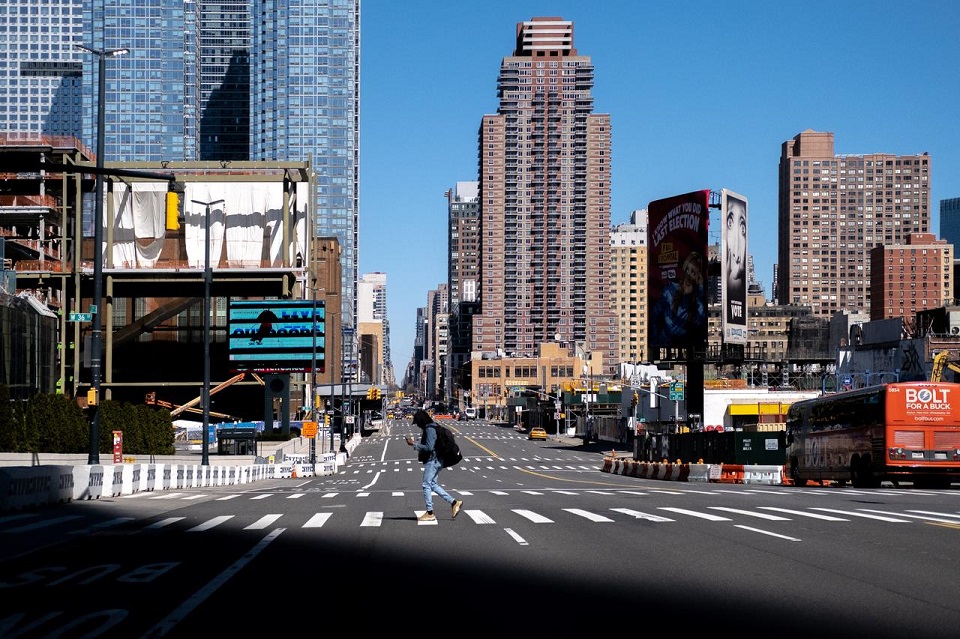
NEW YORK, March 16: Bars, restaurants, theaters and movie houses in New York and Los Angeles were ordered to shut down and several nations in South and Central America closed their borders in the latest moves around the world to combat the spread of the coronavirus.
The U.S. Federal Reserve slashed interest rates in emergency action and other central banks took similar aggressive steps to cushion the economic impact of the disease, but Asian stock markets and the dollar continued to tumble on Monday.
European stocks were poised to open shortly lower.
At an emergency meeting, the Bank of Japan further eased monetary policy by ramping up purchases of exchange-traded funds and other risky assets. Australia’s central bank pumped extra liquidity into a strained financial system and said it would announce more policy steps on Thursday.
Leaders of the G7 countries will hold a video conference at 1400 GMT on Monday to discuss a joint response to the coronavirus outbreak, officials have said.
The coordinated policy actions were reminiscent of the sweeping steps taken just over a decade ago to fight a meltdown of the global financial system, but this time the target is an entirely unfamiliar foe - a fast-spreading health crisis with no certain end in sight that is forcing entire societies to effectively shut down.
Several countries imposed bans on mass gatherings such as sporting, cultural and religious events to combat the disease that has infected over 169,000 people globally and killed more than 6,500.
France and Spain joined Italy in imposing lockdowns on tens of millions of people while Australia ordered self-isolation of arriving foreigners.
New Zealand’s central bank slashed interest rates by 75 basis points to a record low on Monday following an emergency meeting. The Bank of Japan and four other central banks cut pricing on their swap lines to make it easier to provide dollars to their financial institutions facing stress in credit markets.
“This cannot prevent the economic fallout from social distancing,” said Ray Attrill, head of FX strategy at National Australia Bank in Sydney, referring to a method being used by many countries to try to slow the spread of the virus.
“That will require some fiscal spending and something from the government to make sure small companies are funded.”
New York Mayor Bill de Blasio said on Sunday he was ordering restaurants, bars and cafes to only sell food on a take-out or delivery basis. He also said he would order nightclubs, movie theaters, small theater houses and concert venues to close.
“These places are part of the heart and soul of our city,” he said. “But our city is facing an unprecedented threat, and we must respond with a wartime mentality.”
BORDER CLOSURES
New York also joined the nation’s other major public school systems in calling off classes starting this week.
Los Angeles Mayor Eric Garcetti issued similar orders later on Sunday. Any restaurant, bar or cafe selling food will only be able to do so via delivery or take-out, officials said.
China, were the virus surfaced late last year, said industrial output contracted at the sharpest pace in 30 years in the first two months of the year as the disease disrupted the world’s second-largest economy.
The International Olympic Committee will hold talks with heads of international sports organizations on Tuesday in response to the pandemic, a source close to an international federation briefed on the issue said, amid growing doubts that the Tokyo 2020 Olympics starting July 24 can proceed.
Nations in South and Central America ramped up measures to contain the infection, with Panama banning entry of non-resident foreigners and Honduras closing its borders to passenger traffic for a week.
The leaders of Argentina and Peru also announced border closures on Sunday to curb coronavirus. Argentina will close its borders for 15 days to non-residents, President Alberto Fernandez said in a televised press conference.
Public and private school classes would also be suspended until March 31, Fernandez said. National parks would be closed.
Peruvian President Martin Vizcarra said later on Sunday that Peru would also close its borders, suspending air and sea transport. He called on citizens to self-quarantine for 15 days to help slow the infection.
“The worst is yet ahead for us,” said Dr. Anthony Fauci, the top infectious diseases expert in the United States. “It is how we respond to that challenge that is going to determine what the ultimate end point is going to be.”
The policy actions were not enough to calm skittish investors. On Monday, E-mini futures for the S&P 500 index ESc1 fell 4.77% to their daily trading limit outside the United States.
EUROSTOXXX 50 futures STXEc1 fell 3.4% and FTSE futures FFIc1 2.7%.
MSCI's index of Asia-Pacific shares outside Japan .MIAPJ0000PUS slid 3.1% to lows not seen since early 2017 while Tokyo stocks .N225 were over 2% lower.
The dollar was last down 0.5% on the Japanese yen at 107.36, having fallen 1.7% earlier in the day.
“It may be a shot in the arm for risk assets and help to address liquidity concerns ... however, it also raises the question of whether the Fed has anything left in the tank should the spread of the virus not be contained,” said Kerry Craig, global market Strategist at J.P. Morgan Asset Management.
“We really need to see the fiscal side ... to prevent a longer than needed economic slowdown.”
You May Like This

Another Nepali dies of COVID-19 in USA
USA, April 26: A 61-year-old non-resident Nepali has died of the novel coronavirus disease in the United States of America. Read More...
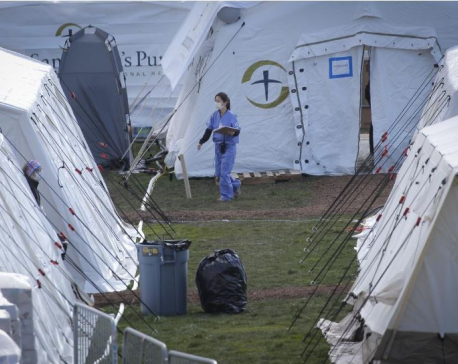
Most Americans huddle indoors as coronavirus deaths keep spiking
LOS ANGELES, April 2: Four new states imposed sweeping stay-at-home directives on Wednesday in response to the coronavirus pandemic, putting over... Read More...
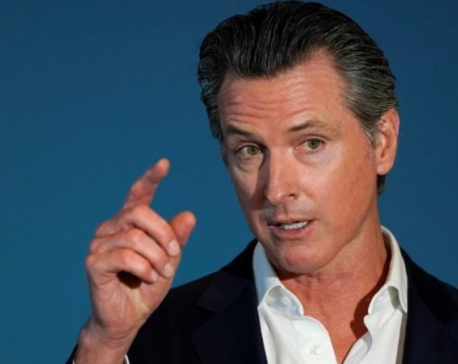
California issues 'stay home' order; U.S. death toll hits 200
LOS ANGELES/WASHINGTON, March 20: California issued an unprecedented statewide “stay at home” order on Thursday for its 40 million residents and... Read More...


Just In
- Nepal govt’s failure to repatriate Nepalis results in their re-recruitment in Russian army
- Sudurpaschim: Unified Socialist leader Sodari stakes claim to CM post
- ED attaches Raj Kundra’s properties worth Rs 97.79 crore in Bitcoin investment fraud case
- Newly-appointed Auditor General Raya takes oath
- CM Mahara expands Cabinet in Lumbini Province
- FinMin Pun addresses V-20 meeting: ‘Nepal plays a minimal role in climate change, so it should get compensation’
- Nepalis living illegally in Kuwait can return home by June 17 without facing penalties
- 'Trishuli Villa' operationalized with Rs 100 million investment











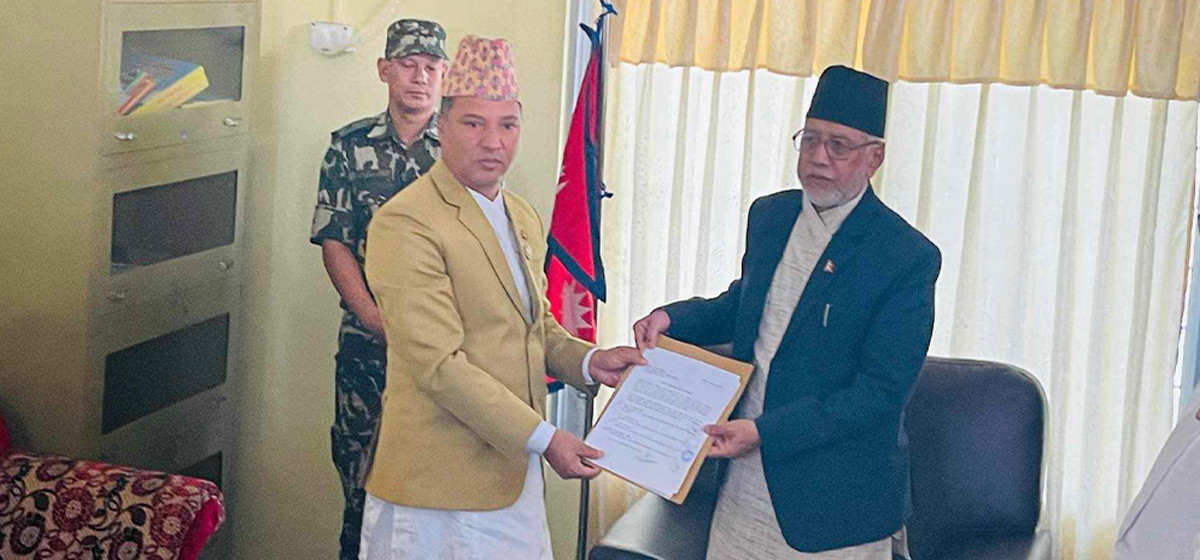
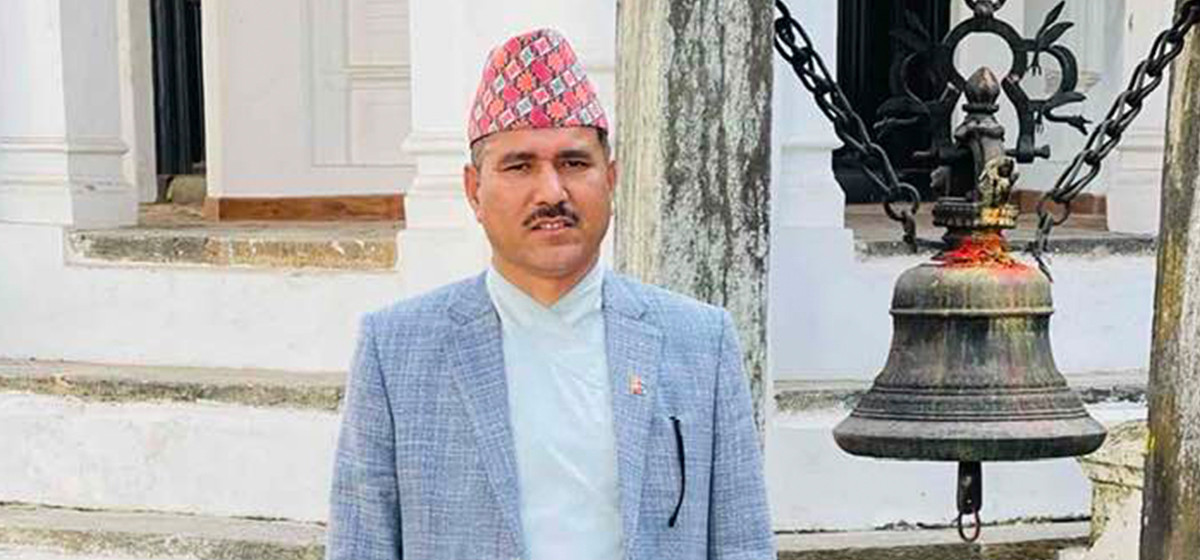

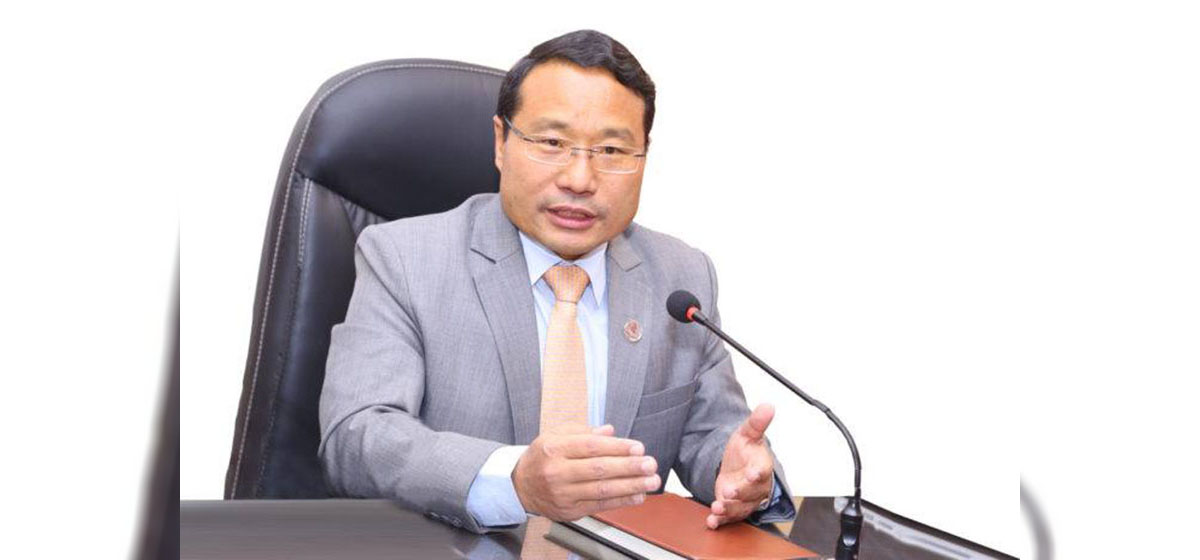

Leave A Comment